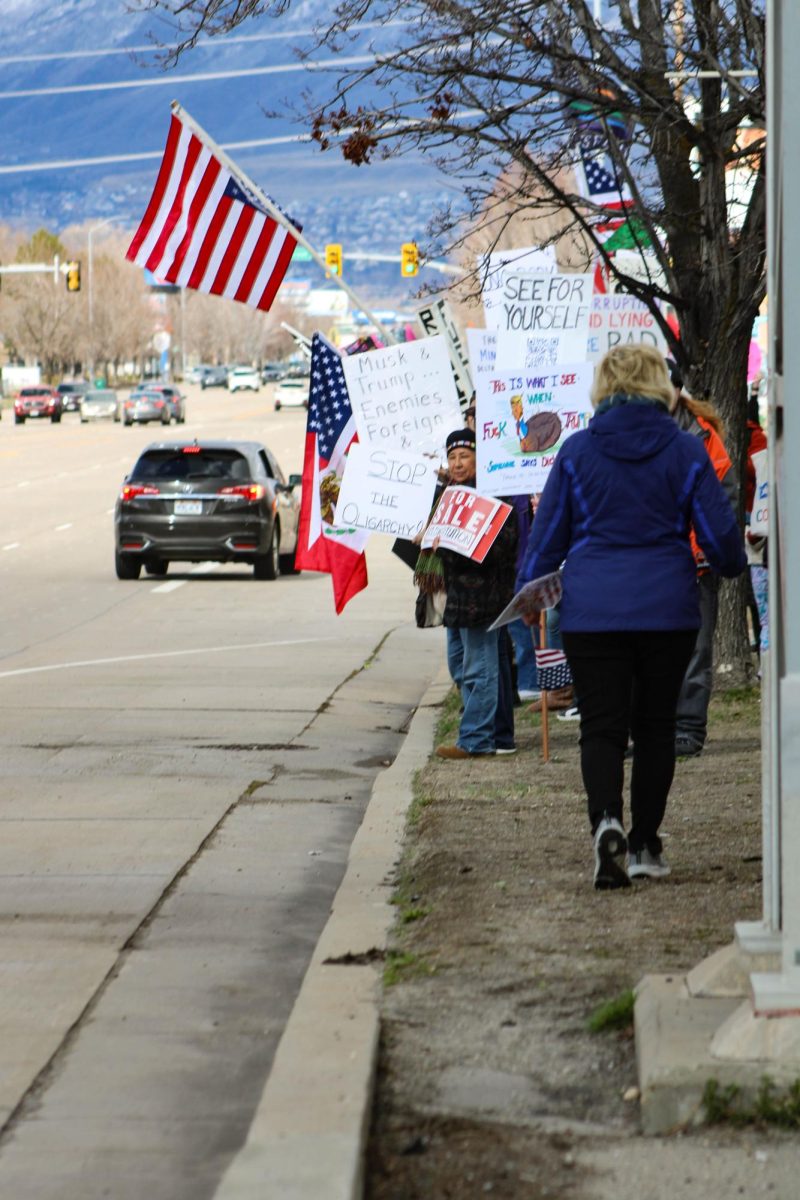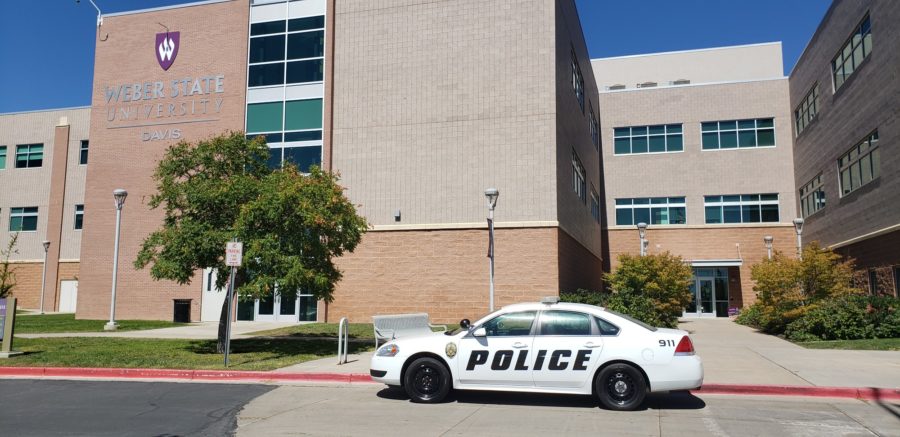Gas prices may have fallen in recent weeks, but Weber State University students said they are still feeling the effects of high prices.
Shawn Palmer, a WSU sophomore, drives 38 miles each way, four days a week, to the main campus.
“Honestly, my whole life has changed because I’m going back to school, and the cost of the commute is horrendous,” he said. “In total, my truck costs $300 per month to gas, which is really hard on the pocketbook.”
Amy Jensen, also a WSU sophomore, commutes about 30 miles, three days a week, to classes held at the WSU Davis campus and Davis High School.
Jensen recently purchased a new SUV, and said it has increased the amount she spends on gas.
“I am spending more on gas now than I was, because my new car requires mid-grade gas and gets less miles per gallon than my old car.”
Cliff Nowell, associate dean and professor of economics at WSU, said gas prices in Utah aren’t necessarily more expensive than elsewhere.
“Because of refining and refining capacity and taxes, gas prices will differ all through the U.S.,” Nowell said. “(With) the schedule that refineries are on, sometimes they are not at full capacity in one region, where they are at full capacity producing gas in another region, and so there are regional differences through time. I don’t think Utah is more expensive on average than the nation, but there are times when we are more expensive and less expensive.”
The markets in other countries impact local gas prices too.
“(In the past) it was rare to find car ownership in the largest country in the world — China,” Nowell said. “Now — in the cities, anyway — it is more and more common among the upper-middle class, so the worldwide demand for oil has changed dramatically in the past 10 years, and oil is really a worldwide market.”
According to Nowell, gas prices will continue to fluctuate.
“As the world comes out of recession and economic growth increases, oil prices will rise and gas costs will increase,” he said. “But one thing that people commonly say about gas prices is that they buy the same amount of gas when the price changes, but that’s just not true. Numerous studies show, in the long run, if the price of gas goes up by, say, 10 percent, consumption will go down by 6 percent. . . .”
To limit her gas consumption, Jensen said, she is thinking about applying to the WSU nursing program offered at the Davis Applied Technology College in Kaysville, or even transferring schools.
“I try to drive as little as possible,” she said. “If we aren’t too busy at work, I try to get everything done in two days so I don’t have to drive up the third day.”
Palmer said he saves money when he can by using alternate transportation.
“During the warmer months, I have a motorcycle that I get to ride to and from school,” he said. “The gas mileage is about twice what I get in my truck, and the tank only takes about $15 to fill.”
However, both Palmer and Jensen said public transportation will not work for them.
Nowell said more people might change their behavior when the recession lifts and gas prices go up.
“. . . The increase of prices will cause people to take public transportation, buy hybrid cars that you never saw 10 years ago,” Nowell said, “so there are some limits as to how the increasing oil prices will ultimately impact gas prices, because people will substitute out of gasoline.”




















